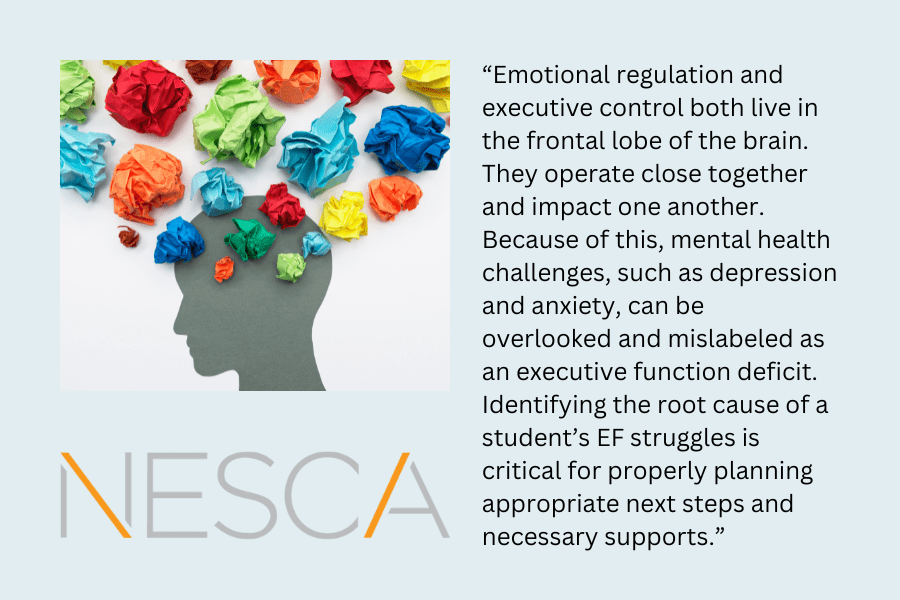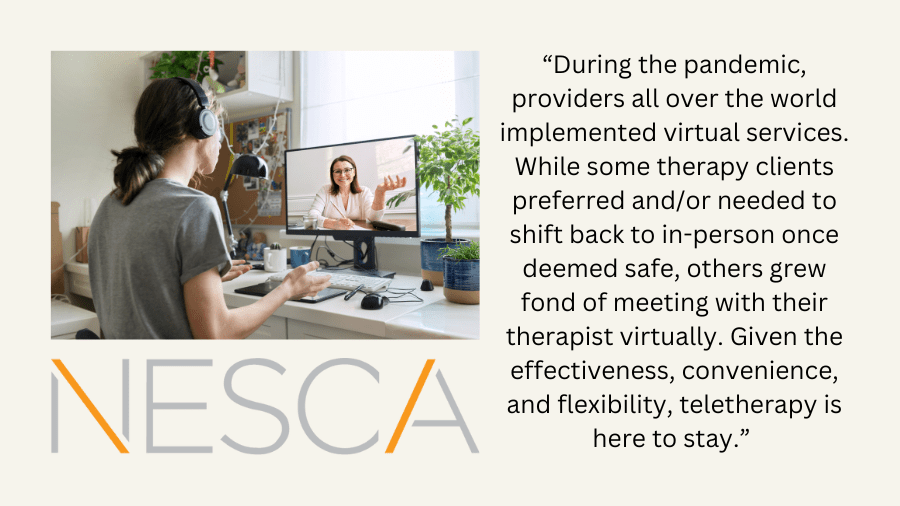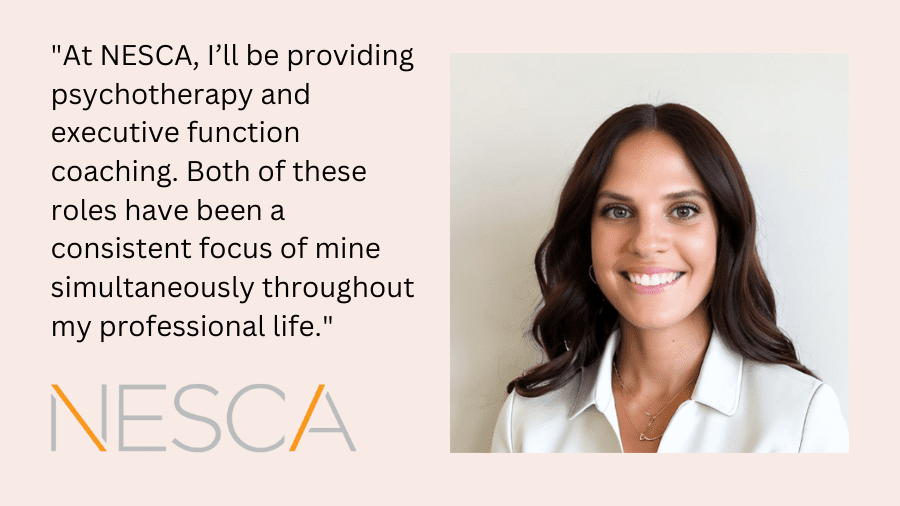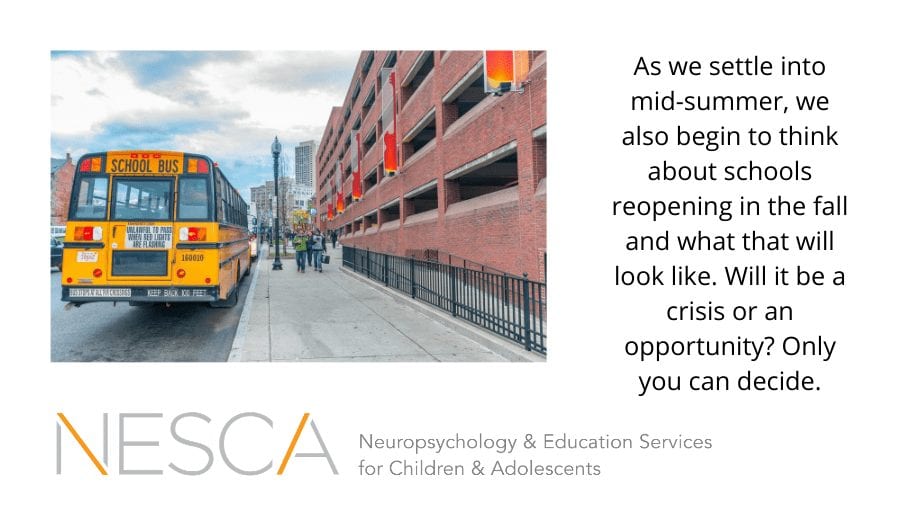
 By: Carly Loureiro, MSW, LCSW
By: Carly Loureiro, MSW, LCSW
Licensed Clinical Social Worker and Executive Function Coach
Phrases like “mind over matter,” “the glass is half full,” and “making lemonade out of lemons,” are more than just popular sayings; they capture the essence of having a positive mindset. With the complexities that everyday life can bring, maintaining a positive mindset can feel overwhelming. Negative thoughts and emotions often creep in, clouding our judgment and affecting our mental health. Learning how to maintain a positive mindset can help individuals overcome these negative thoughts, leading to a decrease in anxiety and depression symptoms, higher self-esteem, as well as improved physical well-being and interpersonal relationships. Those needing assistance in gaining control of their mindset should consider Cognitive Behavioral Therapy, a therapeutic intervention that can aid in strengthening this skill, leading to desired outcomes.
Understanding Mindset
A mindset is a set of beliefs or attitudes that shape how we perceive and respond to situations. Broadly, mindset can be categorized as positive or negative:
- Positive Mindset: Involves seeing challenges as opportunities, maintaining optimism, and focusing on potential rather than limitations.
- Negative Mindset: Involves focusing on problems, expecting unfavorable outcomes, and feeling overwhelmed by obstacles.
Mindset shapes our internal dialogue and emotional responses, such as how we react to challenges. A positive mindset promotes constructive thoughts and emotions, leading to feelings of hope, joy, and contentment. For example, someone with a positive mindset is more likely to engage in proactive coping strategies, such as going for a walk, engaging in positive self-talk, and practicing mindfulness and gratitude. Conversely, a negative mindset can foster destructive thoughts and emotions, leading to avoidance, self-sabotage, or other harmful behaviors.
The Role of Cognitive Behavioral Therapy (CBT)
Cognitive Behavioral Therapy (CBT) is a powerful and effective psychotherapeutic treatment that helps individuals understand how their thoughts, feelings, and behaviors are interconnected. A CBT therapist helps clients learn new skills and strategies to gain more control of their thoughts, leading to a happier and healthier approach to problem solving. CBT is widely used to treat a range of mental health disorders, including depression, anxiety, phobias, and PTSD.
See below a visual of the cognitive triangle, often used to help people better understand the concept of CBT and how it applies to their own personal experiences:

Components of CBT That Contribute to Positive Mindset:
- Self-awareness: Becoming aware of your thought patterns and where they originated, noticing when you tend to think negatively, and really understanding how it influences your feelings and behaviors
- Cognitive Reframing: Challenging negative thought patterns when you notice them and replacing them with thoughts that are more positive, leading to actions that are productive
- Mindfulness and Relaxation Techniques: In order to gain more control of your thoughts, incorporating mindfulness and relaxation techniques can help individuals reset and shift their thinking patterns
- Gratitude Practice: Regularly reflecting on things you’re grateful for can also help shift your focus from what’s lacking to what’s abundant in your life, increasing motivation and self-esteem
- Positive Affirmations: Reinforcing your self-worth and capabilities with positive affirmations
- Homework: CBT therapists may assign tasks to be completed in between sessions in order to practice newly learned skills
An Example:
Tanya, a ninth grade student, has an upcoming history final. Final exams tend to be difficult, as her slower processing speed impacts her ability to grasp a magnitude of details. With her executive function coach, Tanya has learned new ways to memorize larger quantities of information, such as making associations and using mnemonic devices and visuals. In the past, prior to a test or quiz, Tanya got stuck in negative thinking patterns, such as telling herself she will not get a passing score, or that she isn’t smart enough. These negative thoughts would make her feel hopeless, inadequate, and self-conscious. Before the test or quiz, she’d become distracted by these thoughts, not putting forth her best effort, resulting in scores that didn’t reflect her knowledge.
Tanya began working with a CBT therapist to help her mitigate the impact of her performance anxiety. By incorporating mindfulness, gratitude, and thought log exercises (see examples below), she learned how to reframe unhelpful thoughts into productive ones, leading to scores that matched her knowledge and skill set. Instead of telling herself, “I won’t pass this test,” she’d tell herself, “I studied for this test, therefore I have the knowledge and my score will reflect that!” By shifting her mindset and correcting the negative thoughts, Tanya learned the impact they had on her performance. She’s now learning how to apply these strategies to all of her academic classes to normalize having a positive mindset.
Examples of Exercises:
Mindfulness exercise: Each morning while eating breakfast, Tanya listens to a quick 2-minute guided meditation, helping her become more present and ready for the day, moving away from negative thoughts that could impede her success.
Gratitude exercise: Tanya completes a prompt in her gratitude journal before bed, reflecting on daily highlights, such as something that made her smile that day, or a way she helped a friend or classmate.
Thought log exercise: Tanya’s therapist created a thought log for her to challenge her negative thoughts when she found herself experiencing them, and replacing them with an uplifting thought.
Looking for support in this area?
Negative thoughts can be difficult to overcome alone. If you are interested in CBT to receive support in gaining control of harmful thinking patterns, you can book a free introductory call with me by filling out our online intake form.
About the Author
Carly Loureiro is a Licensed Clinical Social Worker practicing in Massachusetts and Rhode Island. Having worked both in private practice and schools, she has extensive experience supporting students, families and educational teams to make positive changes. Mrs. Loureiro provides executive function coaching and psychotherapy to clients ranging from middle school through adulthood. She also offers consultation to schools and families in order to support her clients across home and community environments.
To schedule an appointment with one of NESCA’s counselors, coaches, or other experts, please complete our online intake form.
NESCA is a pediatric neuropsychology practice and integrative treatment center with offices in Newton, Plainville, and Hingham, Massachusetts; Londonderry, New Hampshire; and staff in the greater Burlington, Vermont region and Brooklyn, New York, serving clients from infancy through young adulthood and their families. For more information, please email info@nesca-newton.com or call 617-658-9800.




 private practice and schools, she has extensive experience supporting students, families and educational teams to make positive changes. Ms. Edelstein provides executive function coaching and psychotherapy to clients ranging from middle school through adulthood. She also offers consultation to schools and families in order to support her clients across home and community environments.
private practice and schools, she has extensive experience supporting students, families and educational teams to make positive changes. Ms. Edelstein provides executive function coaching and psychotherapy to clients ranging from middle school through adulthood. She also offers consultation to schools and families in order to support her clients across home and community environments.



 and academia for over 30 years. She is a national consultant and speaker on program design and the inclusion of children and adolescents with special needs, especially those diagnosed with Autism Spectrum Disorder (ASD). Prior to joining NESCA, Ms. Lucci was the Principal of the Partners Program/EDCO Collaborative and previously the Program Director and Director of Consultation at MGH/Aspire for 13 years, where she built child, teen and young adult programs and established the 3-Ss (self-awareness, social competency and stress management) as the programming backbone. She also served as director of the Autism Support Center. Ms. Lucci was previously an elementary classroom teacher, special educator, researcher, school psychologist, college professor and director of public schools, a private special education school and an education collaborative.
and academia for over 30 years. She is a national consultant and speaker on program design and the inclusion of children and adolescents with special needs, especially those diagnosed with Autism Spectrum Disorder (ASD). Prior to joining NESCA, Ms. Lucci was the Principal of the Partners Program/EDCO Collaborative and previously the Program Director and Director of Consultation at MGH/Aspire for 13 years, where she built child, teen and young adult programs and established the 3-Ss (self-awareness, social competency and stress management) as the programming backbone. She also served as director of the Autism Support Center. Ms. Lucci was previously an elementary classroom teacher, special educator, researcher, school psychologist, college professor and director of public schools, a private special education school and an education collaborative.



Connect with Us